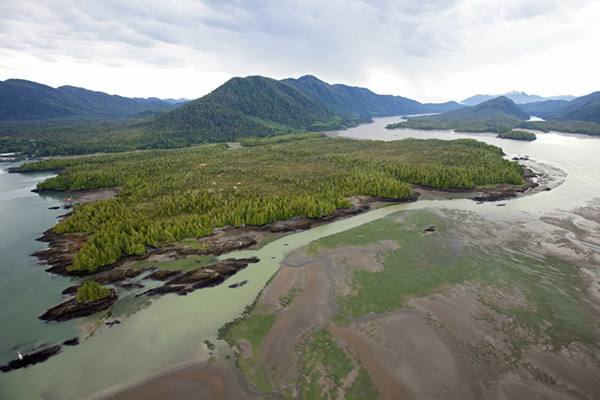Despite a recent setback from the Lax Kw'alaams First Nation and ongoing economic uncertainty, the British Columbia government today announced two agreements that it says will help start a liquefied natural gas industry in the province.
"We have worked hard to establish a path for final investment decisions with the agreements that we are about to sign today," said B.C. Premier Christy Clark. "These agreements set the stage for a potential $36 billion investment in northern British Columbia that will be a key driver of jobs for people in every corner of our province."
The agreements with Pacific NorthWest LNG, a partnership that the Malaysian government-owned company Petronas leads, are a Project Development Agreement and a Long-term Royalty Agreement.
The province recently passed enabling legislation for the royalty agreement, and Clark said once Pacific NorthWest LNG approves the development agreement the government will present it in the legislature along with the supporting legislation, where they will be debated.
The development agreement was not publicly available today. Clark said it sets out the steps Pacific NorthWest LNG and the government will take towards ratifying the project.
The royalty agreement, meanwhile, guarantees a minimum amount of royalty to the province and makes the rates predictable for Pacific Northwest LNG, protecting it from changes specific to the industry that the government might make in the future.
The Pacific NorthWest LNG project would see an export terminal built on Lelu Island near Prince Rupert, as well as the natural gas pipelines to feed the plant.
Lax Kw'alaams reject offer
The project got a major setback recently when the 3,600-member Lax Kw'alaams band in Prince Rupert refused to consent to the project in exchange for a $1-billion, 40-year offer from the company.
Asked about the band's vote and whether the lack of consent might block the project, Clark said those issues are part of the Canadian Environmental Assessment process, which has been ongoing for more than 180 days on the project.
"That process is underway and in the meantime we are there helping," she said. Noting that 28 First Nations have already completed agreements, she added, "We're hopeful as we've been with all the other agreements that we've concluded that we'll get there ... When there's that kind of goodwill around the table, we'll find a way to get there."
Clark's figure also includes agreements related to other LNG proposals. For the Pacific NorthWest LNG project, the partnership has reached agreements with 14 out of 19 First Nations on the pipeline routes and none of the six First Nations near the proposed facility itself.
Michael Culbert, the president of Pacific NorthWest LNG, acknowledged that the economy and energy sector have changed dramatically in the time the partnership has been considering the project. "We look at this as a long-term project," he said, adding that today's agreements help provide that certainty.
Many of the technical questions that the Lax Kw'alaams and others have will be answered through the federal environmental assessment process, he said, but added that much of the "heavy lifting" remains to be done. ![]()

















Tyee Commenting Guidelines
Comments that violate guidelines risk being deleted, and violations may result in a temporary or permanent user ban. Maintain the spirit of good conversation to stay in the discussion.
*Please note The Tyee is not a forum for spreading misinformation about COVID-19, denying its existence or minimizing its risk to public health.
Do:
Do not: